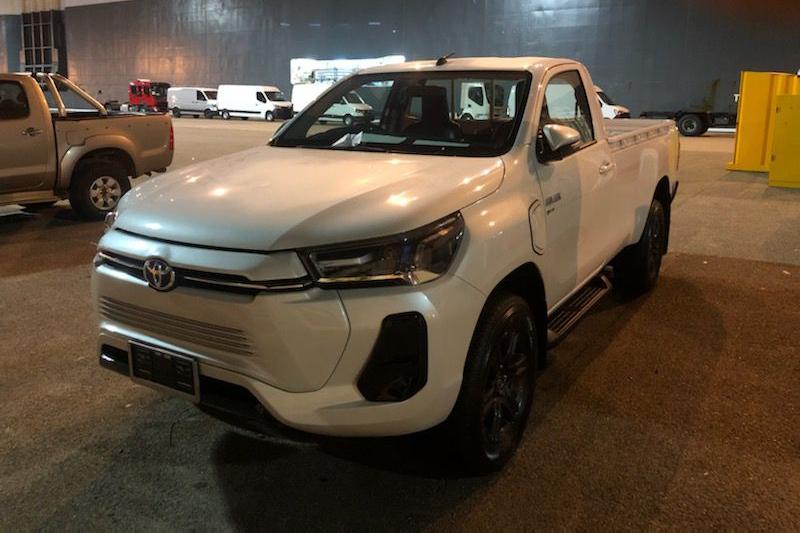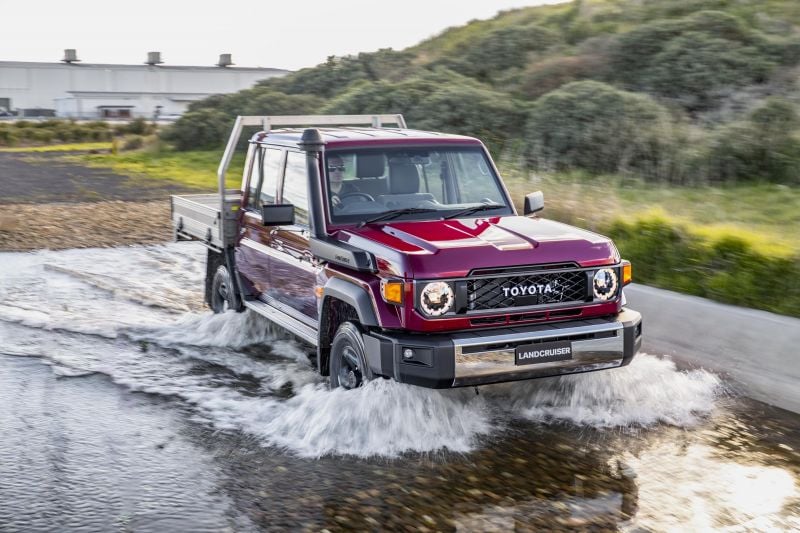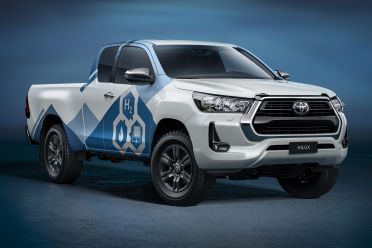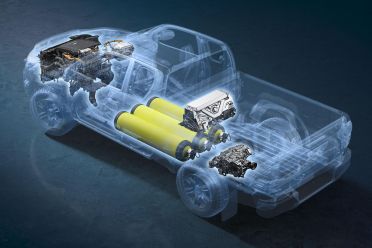Toyota has been beaten to the punch on electric utes by Rivian, Tesla, Ford, and Chevrolet – but it doesn’t seem too worried.
The brand has one of the nation’s two best-selling diesel utes in the HiLux, and has recently revealed a concept electric version of the long-bed HiLux Revo sold in Thailand.
Toyota Australia vice president of sales and marketing, Sean Hanley, told media the road-focused Revo BEV concept offers a hint as to where electric Toyota utes might start… but laid out a much tougher set of demands for a zero-emissions replacement for the HiLux.
“Given the enormous challenges we face when electrifying commercial vehicles, it seems to make sense that we start with an electric ute for the on-road market,” he said.
“In fact I can imagine a day, perhaps a few years from now, when such a vehicle could help transform the e-mobility landscape in many countries.
“Of course, what I’m really hanging out for is exactly the same thing that everybody’s asking the question about. That is a load-carrying, trailer-towing, remote-area off-road HiLux 4×4 with zero tailpipe emissions. What a vehicle that would be – and it’s possible.
“But imagine the size, weight, and charging time of a battery pack you’d need to do all that and achieve 800km of range. Rest assured, Toyota is working on it.”
So, how does Toyota get there?
Mr Hanley pointed to two possible solutions, the first of which is solid state batteries.
Toyota has spent 2023 talking about its plans to catch up to the pack when it comes to electric cars, and a key pillar is the development of solid-state battery technology.
Along with more range than existing lithium-ion tech, solid-state batteries promise to be safer – without the risk of catastrophic fires due to thermal runaway.
The next-generation lithium-ion batteries due in 2026 will be good for 1000km, according to Toyota.
Toyota says they’ll be 20 per cent cheaper than current batteries to produce, and will charge from 10 to 80 per cent in 20 minutes on a DC public fast charger.
The next step from there is solid-state batteries with up to 1450km of range.
“Maybe, just maybe, there’s another solution,” Mr Hanley mused. “Maybe this is where hydrogen fuel cells can come into their own.”
“Not surprisingly, Toyota has been working in that space too for years. We already have a highly developed technology in the Mirai, which is now in its second generation.”
Despite most of its rivals abandoning their work with what was once touted as the fuel of the future, Toyota UK has a prototype hydrogen HiLux that will eventually be put into limited series production as part of the brand’s “diversified” portfolio of zero-tailpipe-emissions vehicles.




